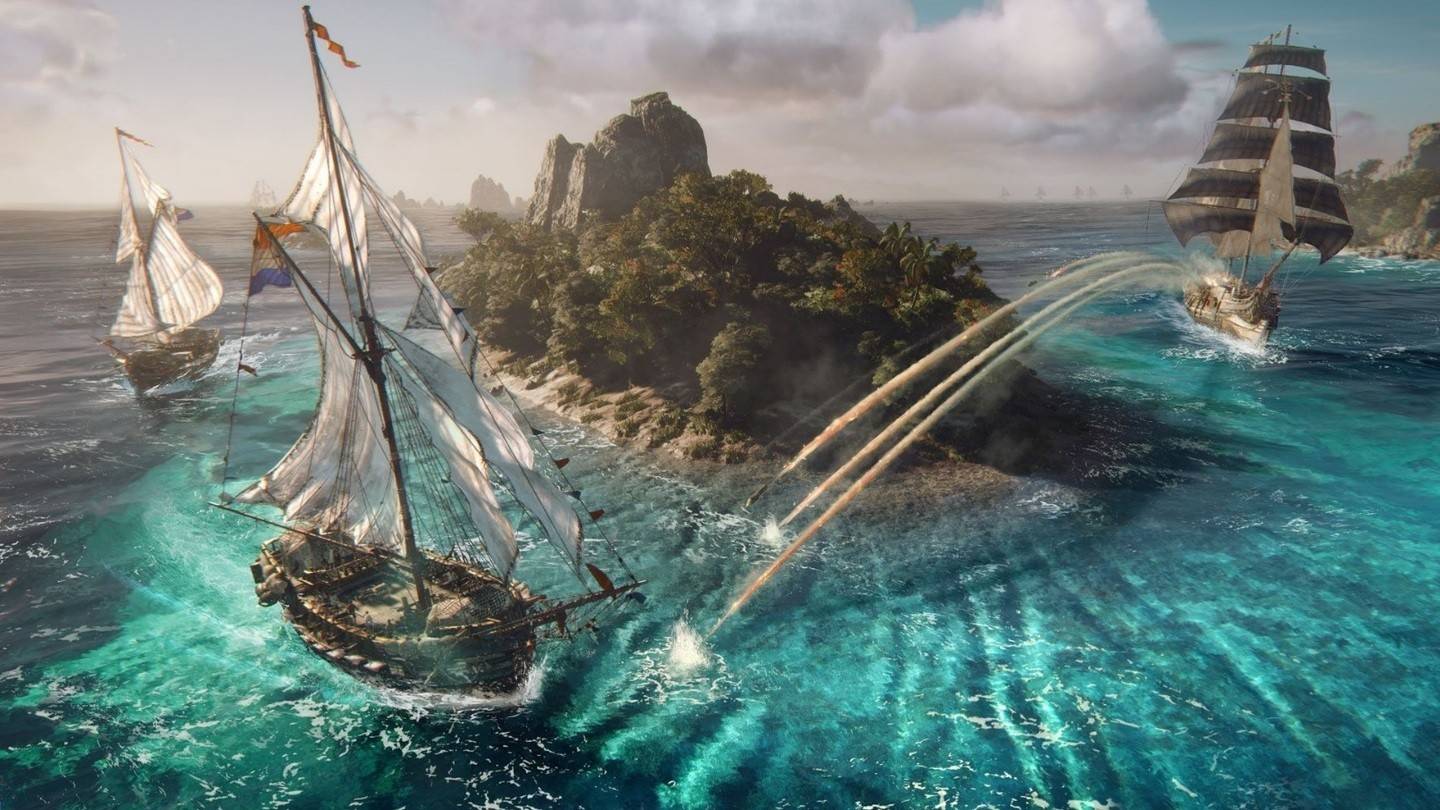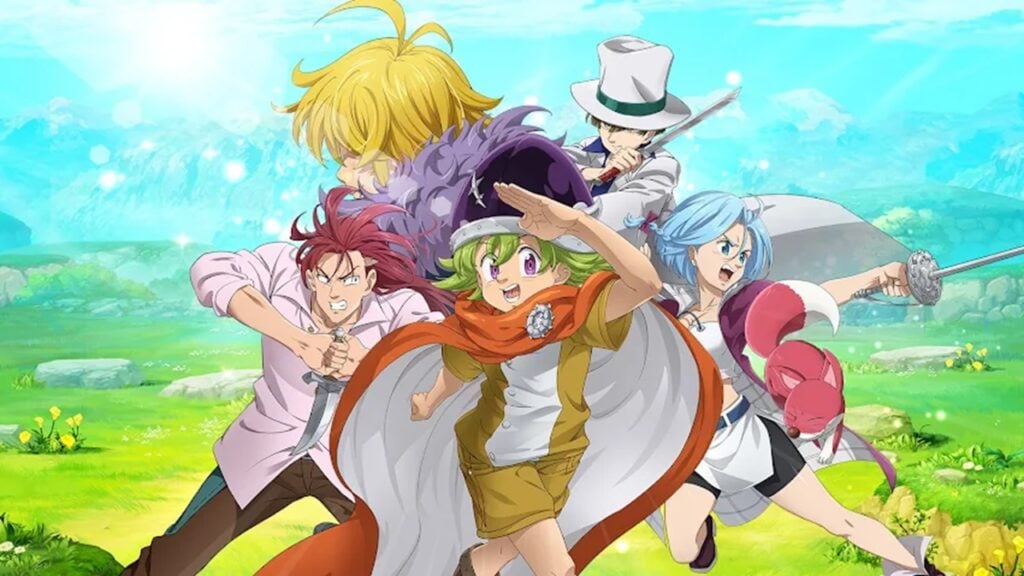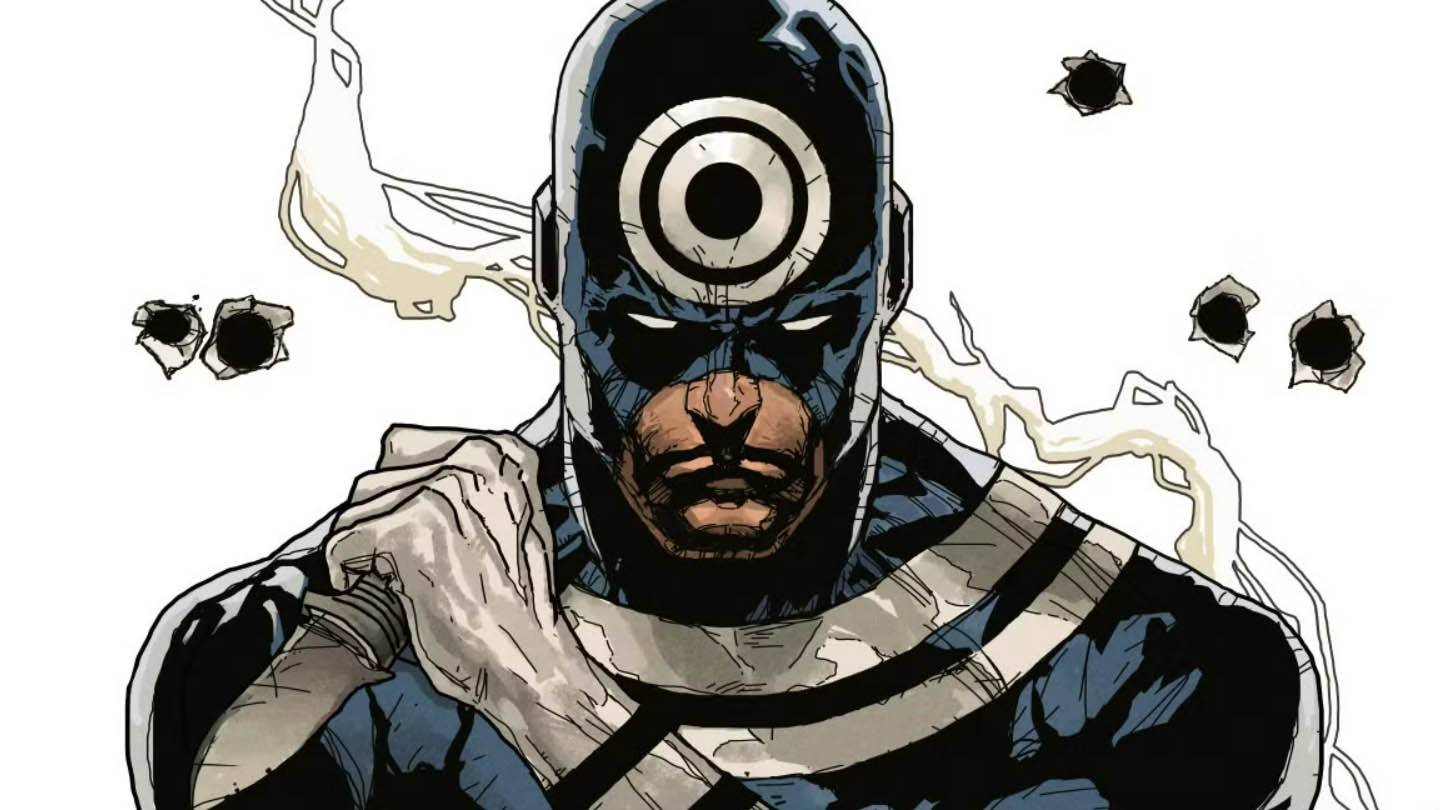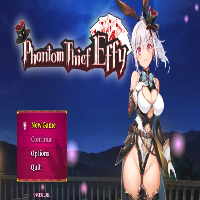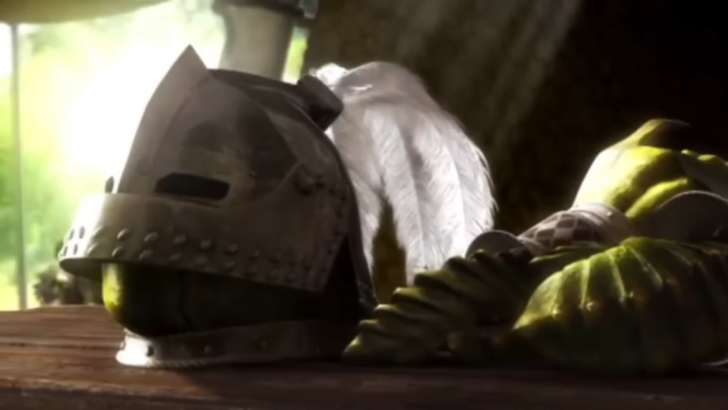 Monster Hunter's narrative, often overlooked due to its straightforward nature, deserves a closer look. This deep dive explores the underlying themes and interwoven stories.
Monster Hunter's narrative, often overlooked due to its straightforward nature, deserves a closer look. This deep dive explores the underlying themes and interwoven stories.
← Return to Monster Hunter Wilds' main article
The Evolution of Monster Hunter's Narrative
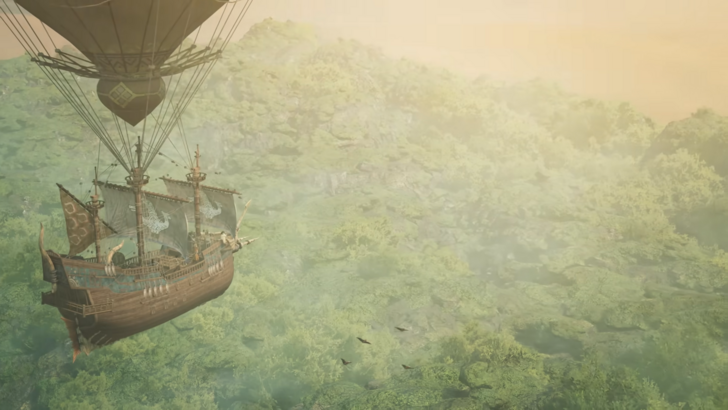 The Monster Hunter series isn't known for its story-driven gameplay. Many consider the narrative secondary to the core hunting mechanics. However, this doesn't mean the story is absent. The mission-based structure, where quests drive the player's actions, often overshadows the narrative threads.
The Monster Hunter series isn't known for its story-driven gameplay. Many consider the narrative secondary to the core hunting mechanics. However, this doesn't mean the story is absent. The mission-based structure, where quests drive the player's actions, often overshadows the narrative threads.
But is it truly that simple? Is Monster Hunter merely a series of hunts for profit, fashion, and sport, with forgettable storylines? Let's examine the mainline games to uncover the deeper meaning.
The Hunter's Journey
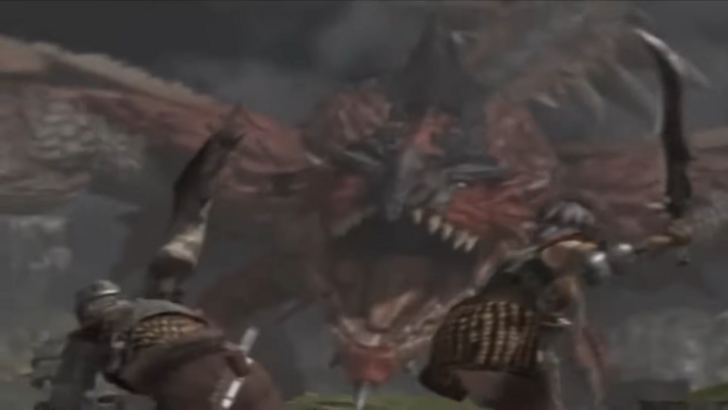 Most Monster Hunter games follow a familiar pattern: a novice Hunter accepts quests, gradually progressing to hunt increasingly powerful monsters, ultimately becoming the village's top Hunter. The core gameplay loop revolves around the Hunter's advancement and triumph over challenging creatures, culminating in a final showdown with the game's ultimate boss (e.g., Fatalis in Monster Hunter 1).
Most Monster Hunter games follow a familiar pattern: a novice Hunter accepts quests, gradually progressing to hunt increasingly powerful monsters, ultimately becoming the village's top Hunter. The core gameplay loop revolves around the Hunter's advancement and triumph over challenging creatures, culminating in a final showdown with the game's ultimate boss (e.g., Fatalis in Monster Hunter 1).
This cycle persists even in later games with enhanced storytelling, forming the structural backbone of the player's journey. However, titles like World, Rise, and their expansions offer more developed narratives.
Guardians of the Ecosystem
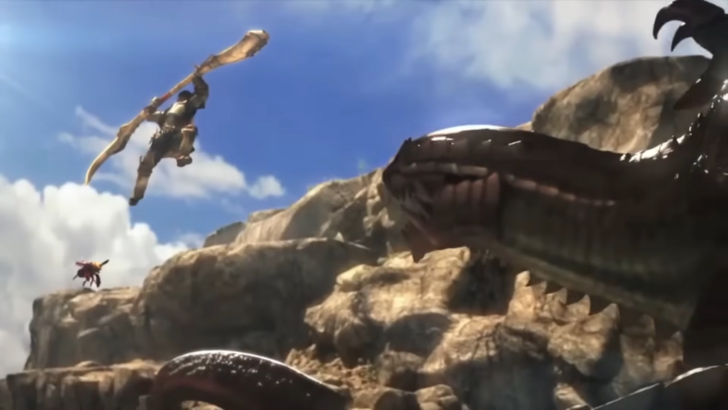 The series often portrays Hunters as forces maintaining ecological balance. Monster Hunter 4 (MH4), for example, features the Gore Magala and its Frenzy Virus, a disease that disrupts the ecosystem. The Gore Magala, a clear antagonist, must be defeated to restore balance.
The series often portrays Hunters as forces maintaining ecological balance. Monster Hunter 4 (MH4), for example, features the Gore Magala and its Frenzy Virus, a disease that disrupts the ecosystem. The Gore Magala, a clear antagonist, must be defeated to restore balance.
However, Monster Hunter: World and Iceborne offer a more nuanced perspective. The endings reveal that while humans strive to restore balance, they still have much to learn about the natural world's intricate workings.
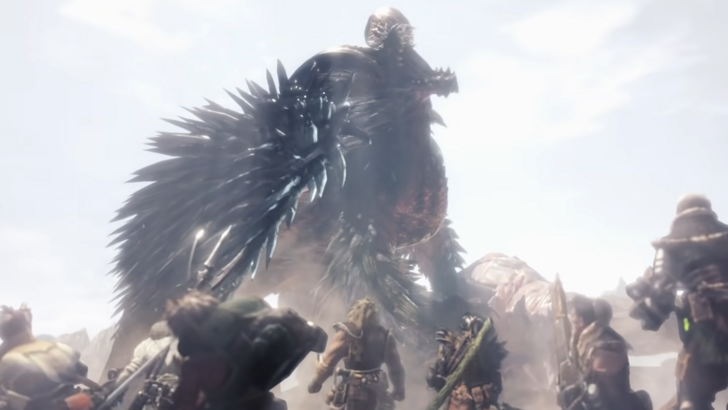 Iceborne's conclusion portrays Nergigante as a natural force of balance. While its role might seem underwhelming, it perfectly encapsulates the game's theme of ecological equilibrium. The base game's ending elevates the Hunter to the status of "Sapphire Star," a guiding light, referencing the in-game "Tale of the Five," suggesting human acceptance of their role as nature's guardians.
Iceborne's conclusion portrays Nergigante as a natural force of balance. While its role might seem underwhelming, it perfectly encapsulates the game's theme of ecological equilibrium. The base game's ending elevates the Hunter to the status of "Sapphire Star," a guiding light, referencing the in-game "Tale of the Five," suggesting human acceptance of their role as nature's guardians.
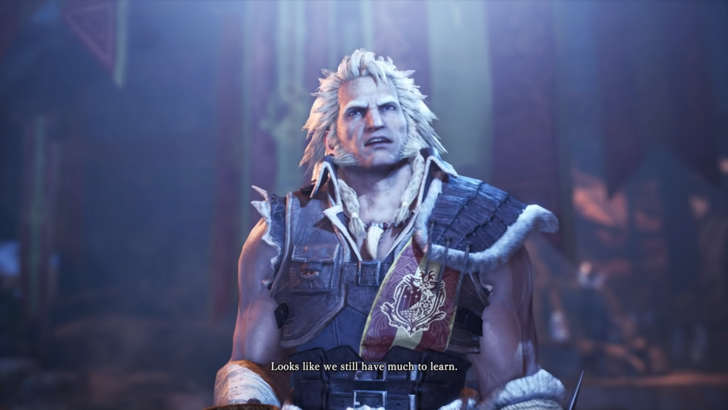 Iceborne's ending contrasts this, highlighting the Research Commission's need for further understanding of nature's self-regulating mechanisms. This juxtaposition showcases nature's resilience, even without human intervention, adding depth to the seemingly straightforward monster-hunting gameplay.
Iceborne's ending contrasts this, highlighting the Research Commission's need for further understanding of nature's self-regulating mechanisms. This juxtaposition showcases nature's resilience, even without human intervention, adding depth to the seemingly straightforward monster-hunting gameplay.
This thematic approach raises a crucial question: how do the monsters perceive the Hunter?
A Reflection of Humanity
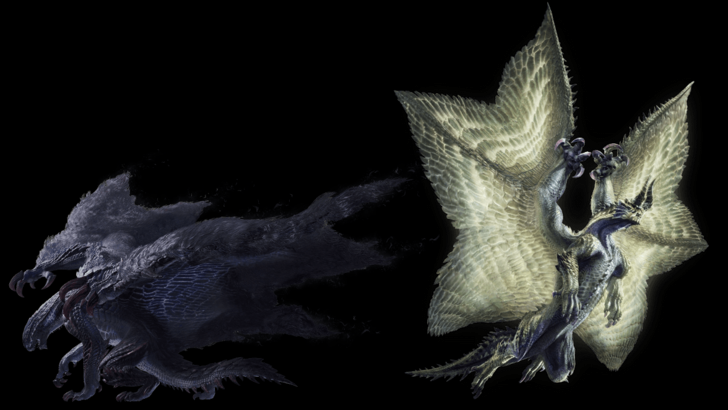 In MH4, defeating the Gore Magala only reveals its evolved form, the Shagaru Magala, mirroring the player's own progression and equipment upgrades. This suggests that monsters also learn and adapt to the Hunter's actions.
In MH4, defeating the Gore Magala only reveals its evolved form, the Shagaru Magala, mirroring the player's own progression and equipment upgrades. This suggests that monsters also learn and adapt to the Hunter's actions.
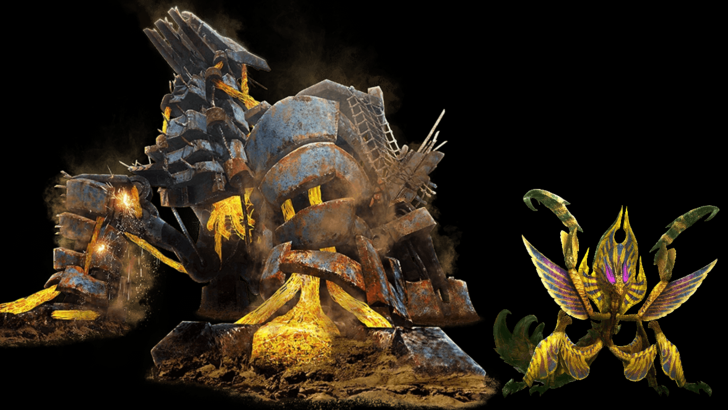 The Ahtal-Ka, the final boss of Monster Hunter Generations Ultimate, exemplifies this. This colossal insect utilizes hunter-like weaponry and constructs, reflecting the Hunter's ingenuity and the monster's adaptation to human strategies. Its unique design and combat style underscore the series' thematic narrative: nature's ability to adapt, even to those who believe they are shaping it. The Ahtal-Ka's combat might even be considered a precursor to Monster Hunter Rise's Silkbind moves.
The Ahtal-Ka, the final boss of Monster Hunter Generations Ultimate, exemplifies this. This colossal insect utilizes hunter-like weaponry and constructs, reflecting the Hunter's ingenuity and the monster's adaptation to human strategies. Its unique design and combat style underscore the series' thematic narrative: nature's ability to adapt, even to those who believe they are shaping it. The Ahtal-Ka's combat might even be considered a precursor to Monster Hunter Rise's Silkbind moves.
The Hunter's Personal Narrative
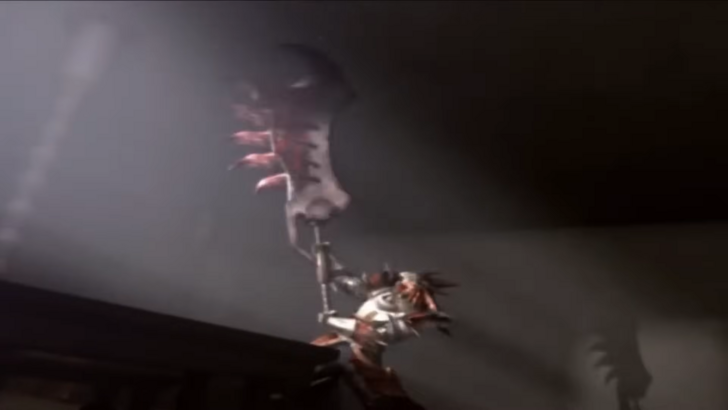 Ultimately, Monster Hunter is a journey of personal growth and overcoming challenges. The series often uses powerful encounters to establish the player's motivation and sense of progression.
Ultimately, Monster Hunter is a journey of personal growth and overcoming challenges. The series often uses powerful encounters to establish the player's motivation and sense of progression.
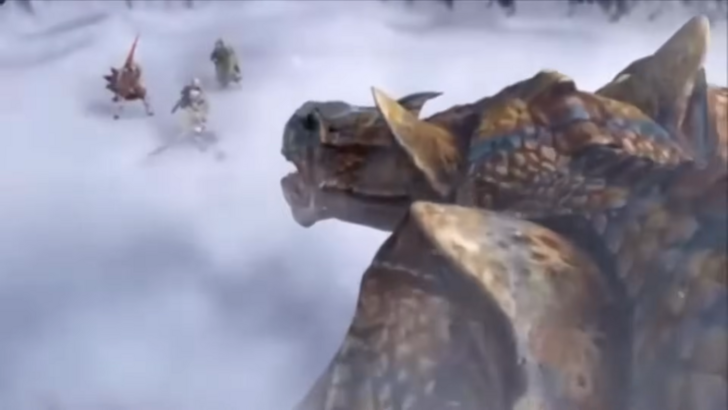 The initial encounter with the Tigrex in Monster Hunter Freedom 2, where the Hunter is thrown from a cliff, serves as a powerful opening, setting the stage for the player's eventual triumph. Later encounters with the same monster highlight the player's growth and mastery.
The initial encounter with the Tigrex in Monster Hunter Freedom 2, where the Hunter is thrown from a cliff, serves as a powerful opening, setting the stage for the player's eventual triumph. Later encounters with the same monster highlight the player's growth and mastery.
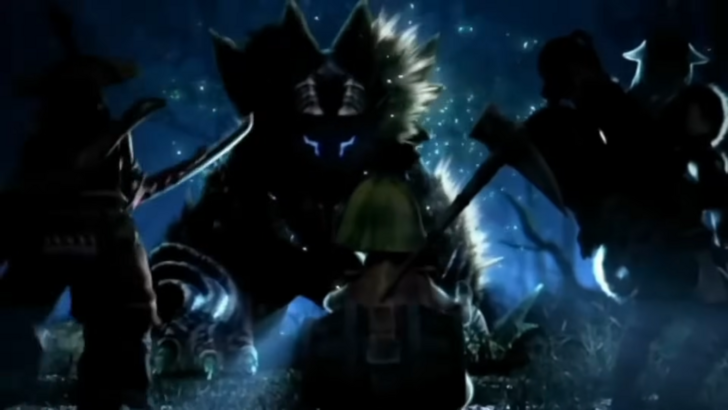 This pattern establishes a compelling narrative arc, emphasizing the player's journey of overcoming adversity. While newer games incorporate more explicit storylines, the core experience of challenging oneself and overcoming powerful foes remains central to the Monster Hunter experience. The series' success lies in its ability to weave the player's personal journey into a memorable narrative, even without a heavily plot-driven structure.
This pattern establishes a compelling narrative arc, emphasizing the player's journey of overcoming adversity. While newer games incorporate more explicit storylines, the core experience of challenging oneself and overcoming powerful foes remains central to the Monster Hunter experience. The series' success lies in its ability to weave the player's personal journey into a memorable narrative, even without a heavily plot-driven structure.

 Monster Hunter's narrative, often overlooked due to its straightforward nature, deserves a closer look. This deep dive explores the underlying themes and interwoven stories.
Monster Hunter's narrative, often overlooked due to its straightforward nature, deserves a closer look. This deep dive explores the underlying themes and interwoven stories. The Monster Hunter series isn't known for its story-driven gameplay. Many consider the narrative secondary to the core hunting mechanics. However, this doesn't mean the story is absent. The mission-based structure, where quests drive the player's actions, often overshadows the narrative threads.
The Monster Hunter series isn't known for its story-driven gameplay. Many consider the narrative secondary to the core hunting mechanics. However, this doesn't mean the story is absent. The mission-based structure, where quests drive the player's actions, often overshadows the narrative threads. Most Monster Hunter games follow a familiar pattern: a novice Hunter accepts quests, gradually progressing to hunt increasingly powerful monsters, ultimately becoming the village's top Hunter. The core gameplay loop revolves around the Hunter's advancement and triumph over challenging creatures, culminating in a final showdown with the game's ultimate boss (e.g., Fatalis in Monster Hunter 1).
Most Monster Hunter games follow a familiar pattern: a novice Hunter accepts quests, gradually progressing to hunt increasingly powerful monsters, ultimately becoming the village's top Hunter. The core gameplay loop revolves around the Hunter's advancement and triumph over challenging creatures, culminating in a final showdown with the game's ultimate boss (e.g., Fatalis in Monster Hunter 1). The series often portrays Hunters as forces maintaining ecological balance. Monster Hunter 4 (MH4), for example, features the Gore Magala and its Frenzy Virus, a disease that disrupts the ecosystem. The Gore Magala, a clear antagonist, must be defeated to restore balance.
The series often portrays Hunters as forces maintaining ecological balance. Monster Hunter 4 (MH4), for example, features the Gore Magala and its Frenzy Virus, a disease that disrupts the ecosystem. The Gore Magala, a clear antagonist, must be defeated to restore balance. Iceborne's conclusion portrays Nergigante as a natural force of balance. While its role might seem underwhelming, it perfectly encapsulates the game's theme of ecological equilibrium. The base game's ending elevates the Hunter to the status of "Sapphire Star," a guiding light, referencing the in-game "Tale of the Five," suggesting human acceptance of their role as nature's guardians.
Iceborne's conclusion portrays Nergigante as a natural force of balance. While its role might seem underwhelming, it perfectly encapsulates the game's theme of ecological equilibrium. The base game's ending elevates the Hunter to the status of "Sapphire Star," a guiding light, referencing the in-game "Tale of the Five," suggesting human acceptance of their role as nature's guardians. Iceborne's ending contrasts this, highlighting the Research Commission's need for further understanding of nature's self-regulating mechanisms. This juxtaposition showcases nature's resilience, even without human intervention, adding depth to the seemingly straightforward monster-hunting gameplay.
Iceborne's ending contrasts this, highlighting the Research Commission's need for further understanding of nature's self-regulating mechanisms. This juxtaposition showcases nature's resilience, even without human intervention, adding depth to the seemingly straightforward monster-hunting gameplay. In MH4, defeating the Gore Magala only reveals its evolved form, the Shagaru Magala, mirroring the player's own progression and equipment upgrades. This suggests that monsters also learn and adapt to the Hunter's actions.
In MH4, defeating the Gore Magala only reveals its evolved form, the Shagaru Magala, mirroring the player's own progression and equipment upgrades. This suggests that monsters also learn and adapt to the Hunter's actions. The Ahtal-Ka, the final boss of Monster Hunter Generations Ultimate, exemplifies this. This colossal insect utilizes hunter-like weaponry and constructs, reflecting the Hunter's ingenuity and the monster's adaptation to human strategies. Its unique design and combat style underscore the series' thematic narrative: nature's ability to adapt, even to those who believe they are shaping it. The Ahtal-Ka's combat might even be considered a precursor to Monster Hunter Rise's Silkbind moves.
The Ahtal-Ka, the final boss of Monster Hunter Generations Ultimate, exemplifies this. This colossal insect utilizes hunter-like weaponry and constructs, reflecting the Hunter's ingenuity and the monster's adaptation to human strategies. Its unique design and combat style underscore the series' thematic narrative: nature's ability to adapt, even to those who believe they are shaping it. The Ahtal-Ka's combat might even be considered a precursor to Monster Hunter Rise's Silkbind moves. Ultimately, Monster Hunter is a journey of personal growth and overcoming challenges. The series often uses powerful encounters to establish the player's motivation and sense of progression.
Ultimately, Monster Hunter is a journey of personal growth and overcoming challenges. The series often uses powerful encounters to establish the player's motivation and sense of progression. The initial encounter with the Tigrex in Monster Hunter Freedom 2, where the Hunter is thrown from a cliff, serves as a powerful opening, setting the stage for the player's eventual triumph. Later encounters with the same monster highlight the player's growth and mastery.
The initial encounter with the Tigrex in Monster Hunter Freedom 2, where the Hunter is thrown from a cliff, serves as a powerful opening, setting the stage for the player's eventual triumph. Later encounters with the same monster highlight the player's growth and mastery. This pattern establishes a compelling narrative arc, emphasizing the player's journey of overcoming adversity. While newer games incorporate more explicit storylines, the core experience of challenging oneself and overcoming powerful foes remains central to the Monster Hunter experience. The series' success lies in its ability to weave the player's personal journey into a memorable narrative, even without a heavily plot-driven structure.
This pattern establishes a compelling narrative arc, emphasizing the player's journey of overcoming adversity. While newer games incorporate more explicit storylines, the core experience of challenging oneself and overcoming powerful foes remains central to the Monster Hunter experience. The series' success lies in its ability to weave the player's personal journey into a memorable narrative, even without a heavily plot-driven structure. LATEST ARTICLES
LATEST ARTICLES 